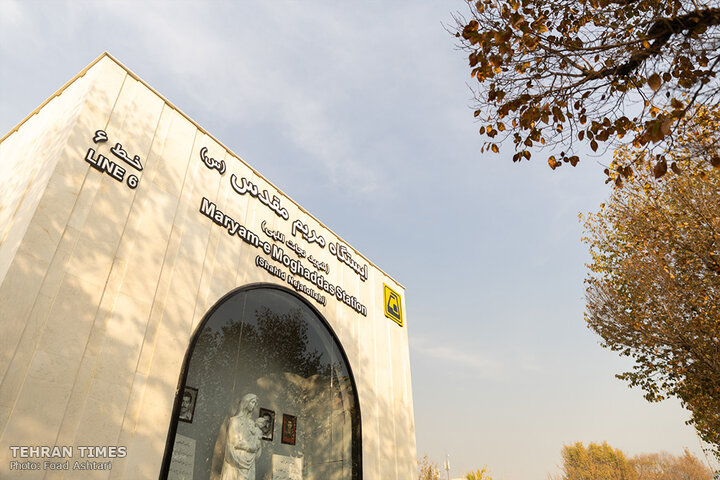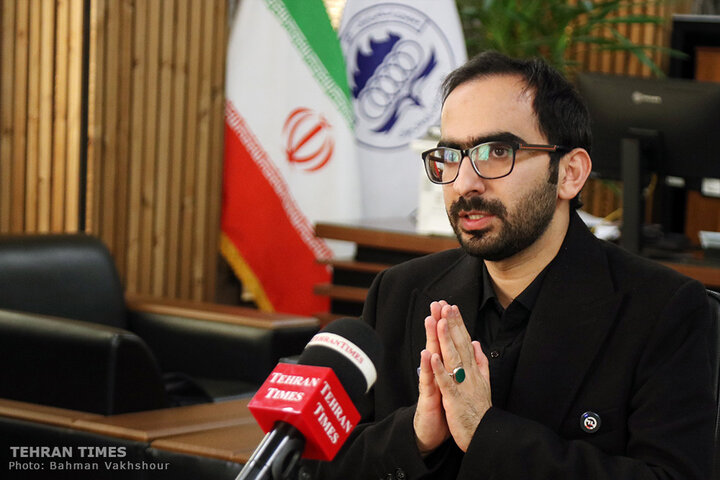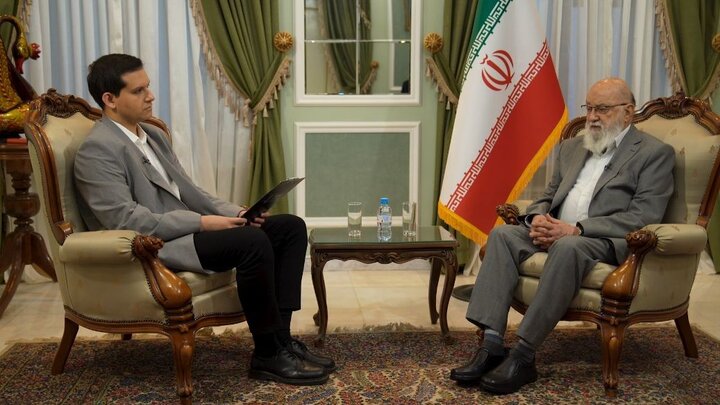-
 2025-12-06 22:18
2025-12-06 22:18
By Faramarz Kouhpayeh
Scrambling to Sustain a Waning Hegemony
Decoding the 2025 US National Security Strategy
TEHRAN – The White House's periodic document outlining United States foreign policy and national security strategy was released by the Trump administration on Thursday. The 33-page document, which appears to draw heavily on Trump's "America First" policy, has raised alarms in nearly every region of the world—with the probable exception of Israel.
-

Iran gaining access to technology of advanced American GBU bombs: Report
TEHRAN – Lebanese media have reported that Hezbollah, the Lebanese Resistance movement, has provided its ally Iran with images and components of the advanced U.S.-made GBU-39B bomb.
-

Iran tests missile with range beyond length of Persian Gulf in latest naval drill
TEHRAN – The commander of the Islamic Revolution Guard Corps Navy (IRGC Navy) says a domestically produced missile with a range exceeding the length of the Persian Gulf was test-fired during a recent naval drill.
-
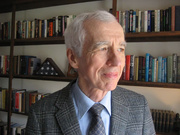
By M.A. Saki
Trump reverting to 1920s–30s ‘gunboat diplomacy’ in Venezuela: ex-CIA officer
'Military pressure on Venezuela sends this sense to the world that Trump’s US is imperialist'
TEHRAN – Paul Pillar, a former CIA officer and now a senior fellow at Georgetown University’s Center for Security Studies, tells the Tehran Times that the Pentagon’s attacks on Venezuelan boats in the Caribbean, carried out under the claim that they are trafficking drugs to the United States, reflect President Donald Trump’s return to the “gunboat diplomacy” of the 1920s and 1930s, when U.S. military forces intervened in several Latin American countries.
-

By Shahrokh Saei
A thousand cuts: Israel’s hybrid war tactics in the Persian Gulf
TEHRAN – In the Persian Gulf, the islands of Abu Musa, Greater Tunb, and Lesser Tunb have long stood as enduring symbols of Iran’s sovereignty. The renewed mention of the islands in the final communique of a Persian Gulf Arab summit in Bahrain was not a mere diplomatic formality, but part of a broader geopolitical maneuver. The statement, which condemned what it called Iran’s “continued occupation” of the islands, was swiftly rejected by Tehran.
-

By Sondoss Al Asaad
LF outsourcing patriotism to the occupiers: See how it ended in Afghanistan
BEIRUT—No contradiction in Lebanese politics is more glaring than the desire of the Lebanese Forces (LF) to see the Israeli enemy resolve their political dispute inside Lebanon. A party that claims to defend state sovereignty routinely seeks foreign intervention against a Lebanese actor with a proven popular and national base.
Politics
-

Iran and Egypt foreign ministers discuss Gaza, bilateral ties
TEHRAN - In a telephone call on Saturday, the foreign ministers of Iran and Egypt discussed bilateral relations and the ongoing Israeli violence in Gaza. Iran’s Seyyed Abbas Araghchi and Egypt’s Badr Abdelatty agreed to continue dialogue to develop ties between the two nations.
-

Terrorists arrested before Tehran metro bombing; trainer a ‘NATO officer’ residing in Sweden
TEHRAN – A number of individuals in Iran, receiving funds and training out of Europe, were arrested by intelligence forces before they could carry out the terrorist operations they had been instructed to conduct, which included the bombing of Tehran’s vast metro station, the killing of police and security forces, and the murder of random civilians.
-

Army budget to be strengthened, Iran’s parliamentary committee says
TEHRAN – The spokesperson for Iran’s parliamentary Plan and Budget Committee says financial support for the country’s Army (Artesh) will continue and be strengthened following a recent meeting with senior military officials.
Sports
-

Iran to play 2026 FIFA World Cup group stage on U.S. soil
TEHRAN – Iran national football team will play their group stage matches of the 2026 FIFA World Cup in Los Angeles and Seattle.
-

Iranians win accolades at 2025 World Taekwondo U21 Championships
TEHRAN – Abolfazl Zandi of Iran was chosen the Most Valuable Player (MVP) of the inaugural Nairobi 2025 World Taekwondo Under 21 Championships.
-

Mohsen Shadi elected head of Iran’s Rowing Federation
TEHRAN – Mohsen Shadi was elected unopposed as the new president of the Iran Rowing Federation on Sunday, securing all 38 votes cast at the election held at Iran’s Olympic Academy.
Culture
-

Hamedan celebrates as children’s theater festival kicks off
TEHRAN- The 30th edition of Iran’s International Theater Festival for Children and Young Adults opened in Hamedan on Saturday, featuring 45 theatrical performances.
-
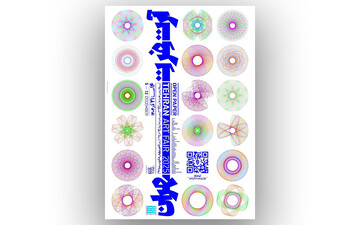
Tehran Art Fair “Open Paper” kicks off
TEHRAN – The first edition of Tehran Art Fair “Open Paper” kicked off at the Institute for the Intellectual Development of Children and Young Adults (Kanoon).
-
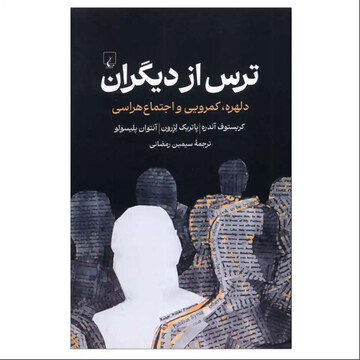
“Fear of Others” published in Persian
TEHRAN – The Persian translation of the book “Fear of Others” written by Christophe André, Patrick Légeron, and Antoine Pelissolo has been released in the bookstores across Iran.
Economy
-
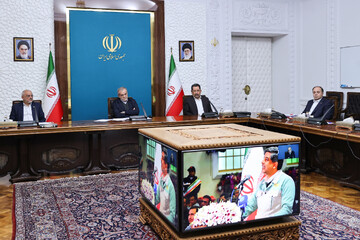
President inaugurates project to transfer seawater to central plateau
TEHRAN- The project to transfer seawater to the central plateau (spanning from Sirjan to Isfahan), which was implemented with the major support of the Mobarakeh Steel Company, was officially inaugurated by order of President Masoud Pezeshkian, on Saturday, December 6, 2025.
-

Sponge iron production increase 5% in 7 months on year
TEHRAN- The production of sponge iron in Iran rose five percent in the first seven months of the current Iranian calendar year (September 23-October 22), as compared to the same period of time in the past year, the Iranian Steel Producers Association (ISPA) announced.
-
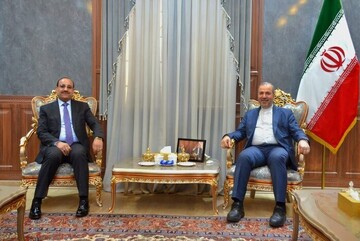
Iran, Iraq officials call for deeper provincial cooperation
TEHRAN – Iran’s ambassador to Baghdad and the governor of the Iraqi capital stressed the need to expand cooperation between the provinces of both countries, highlighting continued communication and the exchange of expertise as key to addressing shared challenges.
Society
-

WHO, Tehran University of Medical Sciences discuss ways to strengthen national laboratory capacities
TEHRAN – The World Health Organization (WHO) Health Emergency team and Tehran University of Medical Sciences have discussed ways to boost the capacities of the National Polio Laboratory (NPL) and the National Influenza Centre (NIC), two of Iran’s leading public health reference centres.
-

Iran to attend United Nations Environment Assembly
TEHRAN – An Iranian delegation led by the head of the Department of Environment (DOE), Shina Ansari, will participate in seventh session of the United Nations Environment Assembly (UNEA-7) which is scheduled to take place from 8 to 12 December at the United Nations Environment Programme (UNEP) headquarters in Nairobi, Kenya, on the theme ‘Advancing sustainable solutions for a resilient planet’.
-
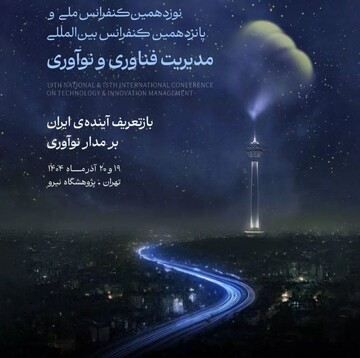
Tehran to host conference on management of technology, innovation
TEHRAN –The 15th Conference on Management of Technology and Innovation is scheduled to be held on December 10 and 11 in Tehran, with the theme ‘redefining Iran’s future based on innovation’.
Tourism
-
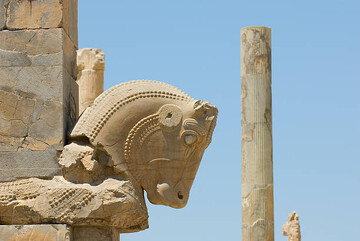
Persepolis launches new conservation program using advanced material and imaging technology
TEHRAN – Iranian restoration teams have launched a new conservation program at the UNESCO-designated Persepolis and the nearby Naqsh-e Rostam site using advanced imaging, special material, and stone-analysis technologies, officials said on Saturday.
-
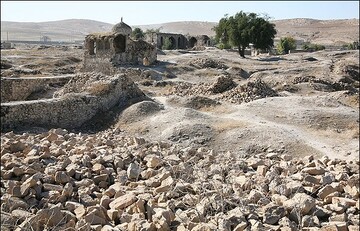
Archaeologists uncover traces of ‘7,000-year-old’ village beneath Iran’s historic Dehdasht
TEHRAN - Archaeologists in Iran have discovered evidence of a prehistoric settlement dating back up to 7,000 years beneath the historic city of Dehdasht in Kohgiluyeh and Boyer-Ahmad province, the lead researcher said on Saturday.
-
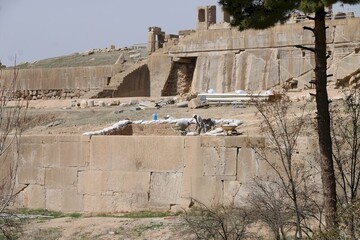
Visitors to access Darius I’s trilingual inscription at Persepolis
TEHRAN – Visitors to Persepolis would have access to the splendid inscription of the Achaemenid King Darius I by Nowruz 1405 (March 2026). The trilingual rack-carved relief is currently being restored, local authorities said.
International
-

A thousand cuts: Israel’s hybrid war tactics in the Persian Gulf
TEHRAN – In the Persian Gulf, the islands of Abu Musa, Greater Tunb, and Lesser Tunb have long stood as enduring symbols of Iran’s sovereignty. The renewed mention of the islands in the final communique of a Persian Gulf Arab summit in Bahrain was not a mere diplomatic formality, but part of a broader geopolitical maneuver. The statement, which condemned what it called Iran’s “continued occupation” of the islands, was swiftly rejected by Tehran.
-

LF outsourcing patriotism to the occupiers: See how it ended in Afghanistan
BEIRUT—No contradiction in Lebanese politics is more glaring than the desire of the Lebanese Forces (LF) to see the Israeli enemy resolve their political dispute inside Lebanon. A party that claims to defend state sovereignty routinely seeks foreign intervention against a Lebanese actor with a proven popular and national base.
-

Israel shifts focus from crises with Gaza aggression
TEHRAN – In continued violations of the truce agreement in the Gaza Strip, Israeli occupation forces (IOF) carry out new strikes east of Gaza City and Khan Younis.
Video Comment
-

Ayatollah Khamenei’s vision of freedom and humanity discussed in intl. conference
-

Iran hosts SCO joint anti-terror drills
-

Holy Mary Metro Station marks interfaith unity in Tehran
-

Academics analyze social dimensions of Resistance in Tehran conference
-
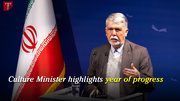
Culture minister highlights year of progress in arts, global image enhancement
Most Viewed
-
Iran gaining access to technology of advanced American GBU bombs: Report
-
Iran to meet Belgium, Egypt and New Zealand: 2026 FIFA World Cup
-
Sahand 2025 showcases Iran's role as hub for counter-terrorism cooperation
-
A thousand stories under one name, Herbert Karim-Masihi reflects on his new exhibition
-
Terrorists arrested before Tehran metro bombing; trainer a ‘NATO officer’ residing in Sweden
-
Iran tests missile with range beyond length of Persian Gulf in latest naval drill
-
Iran stages second major naval drill since war with Israel
-
Lebanon’s art of giving everything away for free
-
Is Japan sliding back toward militarism?
-
Iran hosts SCO joint anti-terror drills
-
Israel utterly failed to shield its protégé in Gaza
-
Professor Azarov argues the West moves Ukraine like a pawn in a grand game
-
Scrambling to Sustain a Waning Hegemony
-
Tehran, Yerevan discuss ways to expand economic, trade, investment co-op
-
Iran’s steadfast stance has transformed resistance politics in West Asia: Malaysian activist


